Citylife International is a private Australian real estate agency, advisory and consultancy company, with a focus on selling units in the St. Kilda Road precinct of 416, 416A and 418
As an alternative to working with an agency, you might consider selling your unit yourself; many sellers think about doing this to save the agency commission;however, if you choose this option, be prepared for a lot of work!
It can and has been done, of course, but if you don’t have the time and energy to commit to it (or need to sell in a hurry), this option might not be for you.
Nine out of ten times, most do not have the time or the resources that a real estate agent may have, so it may be best to use someone that is fully committed to selling your property, has access to a wide variety of resources and is focused on getting the highest price possible for the sale of your property.
If selling your apartment on your own sounds like too much work, you might want to consider using a smaller, specialist agent, that is an expert with the buildings.
Whether you choose to use a large agent, or a specialist you still need to do your homework!
The following is a checklist to help walk you through the process:
If you are not already, become familiar with such facts about your property as land tax for investors, lot size, square footage, etc. Look at the terms of your existing loan.
How much are properties similar to yours selling for? What are the terms of the sales? What property disclosure laws do you need to take into consideration? What are comparable units in the three towers selling for? What is the current square metre selling price?
Get a qualified certified valuer to give you a valuation. After all, this is what the buyers need to get their bank loan if they are going to buy! Don't rely on the agents "estimate of value" as some may boost the price to try to get your business.

Once you know the specifics about your home and have checked out what similar properties in the buildings and close are selling for, set a realistic price.
Contact lenders to determine what the options are for your prospective buyer. You want to be informed before they ask, or your lack of knowledge may mean you won't know whether they are qualified to buy your unit.
Look at it from the perspective of both the prospective buyer and the building inspector. Take notes on all items that need to be repaired or replaced. Things to consider include:
Outside:
You can’t do much about the building, but is the front door and balcony appealing?

Are the windows and doors attractive and in good condition?
Is the common area looking good? If not bring it to the building managers attention.

Inside:
Are the interior paints and finishes in good condition (recently updated), or do they need to be freshened up? This is one area with the best ratio of least expensive to most desired. For a minimal investment, you could possibly make or break a sale by having your apartment look well-kept and inviting.
Are the appliances in good working order and of recent vintage?

Are the plumbing and electrical systems in good condition? Are they fully functional?
Are the carpets or other floor coverings clean and in good condition? Like the paint, are they attractive and well-kept? Floor coverings are worth paying for so that your home makes a good impression.
Are the sealants (sink, shower, tub, windows) in good condition?
Are all light fixtures working properly, and is there good lighting in each room so that prospective buyers won’t think you’re hiding something?
Most prospective buyers will want to know about the local schools, shopping, parks, transportation, restaurants, cafes, supermarkets, pubs etc. Be prepared so you can knowledgeably answer their questions.
Just because you don't go to pubs, or cafe's, doesn't mean your buyer wont. So know all these.
Prepare a detailed location guide for prospective buyers.
Step 1: Defining Success
Outlining Your Objectives
Finalise Documentation & Contractual Agreements

Launching the Marketing Plan
Most agents have their own website, which includes their clients’ listings. If you work with an agent, your property will most likely be placed on their website and on the full Real Estate.com.au and Domain .com.au websites.
However, very few sales originate from the agents website. Most come from Real Estate.com.au and Domain. com.au.
In addition, some newspapers automatically (or for an extra fee) offer Internet advertising tied in to their traditional print ads. Learn the rates and deadlines for each publication, then decide which one (or more) is best for you and your market.
What will get you the most “bang for your buck?” Are there “throwaway” (i.e., free) real estate publications in your area that accept ads from individual sellers? In the local paper(s), is it better (in your area) to run a text-only classified, or do they have “photo boxes” where you can run both text and a photo of your property?
Now that you know what advertising will cost, create a plan on how to best (within your budget) reach prospective buyers, both local and out-of-town. Since many people do relocate from a distance, be sure to include Internet advertising in your plan.
At the very least, you will need a well-written few sentences that will run as a classified ad or a photo box ad. In addition, you might decide to run a larger, custom-designed ad in the paper and/or to use as flyers to hand out at open houses (or anywhere else you might meet prospective buyers). Don’t skimp on this. A professional, well-crafted ad can attract buyers while a poorly designed and executed one can turn buyers off to your property. Even if you do not have graphic design abilities, use a template site like Canva to design your flyer. This is a free resource.
The For Sale sign should be well-designed, attractive and weatherproof. The sign must be placed where it can clearly be seen from the street. If you are working with an agent, he or she will most likely provide the sign to you.
Make sure that the Open House signs include a place to write the address of your property and the date/time of the open house. In addition to one for the front of the building, you’ll want to place several in conspicuous locations along St Kilda Road. For these, directional arrows can point prospective buyers to your Open House even if they are coming to look at another building, or even just going for a coffee! Make sure that you take these signs down as soon as the open house is over. You don’t want people showing up on your doorstep at all hours of the day and night.
Design a single sheet description of your property listing the features and benefits that will draw in prospective buyers. This should be attractive and professional looking. Again, use a resource like Canva to choose an attractive template.Have enough copies on hand to give out at open house showings. Again, if you are working with an agent, he or she will most likely do this on your behalf.
Many potential buyers may not be aware of all the fabulous amenities, cafes and parks all around the Princeton, Promenade and City Condos. Design a detailed and attractive information brochure listing all the nearby attractions, parks, gardens, restaurants, schools, and transport to name just a few. This should be attractive and professional looking. Have enough copies on hand to give out at open house showings. Again, if you are working with an agent, he or she will most likely do this on your behalf. Again, use a resource like Canva to choose an attractive template.

While most are held on the weekend, this is not convenient for all buyers. Make sure that you coordinate your print advertising to include information about your next open house. Consider evening or during the week showings too.

A number of forms are required for the legal sale of your property. In addition to the contract of purchase and any counteroffers, there are approximately 20 other forms that the seller is required to provide to the buyer.
It is necessary to review the contract carefully to determine when these forms/documents are due and what the buyer’s rights are once they receive the document. The form and content of many of these documents are prescribed by law and must be adhered to in their entirety.
Price
Inclusions
Building inspection contingencies
Strata report contingencies
Financing terms
Subject to terms
Date of settlement
Date of possession
It would be prudent for you to have a solicitor review any and all contracts before the deal is finalised.
When both the buyer(s) and a witness can be present, schedule a final walk-through before you complete settlement in order to determine that the property being conveyed meets the expectations of all parties involved.

Unless you have already bought a new residence, you’ll need to be the “buyer” for a new property while simultaneously being the “seller” for your current one. If possible, schedule both transactions to close at the same time, or else close your purchase shortly before closing your sale. You need to be moved out before the new owners take possession.
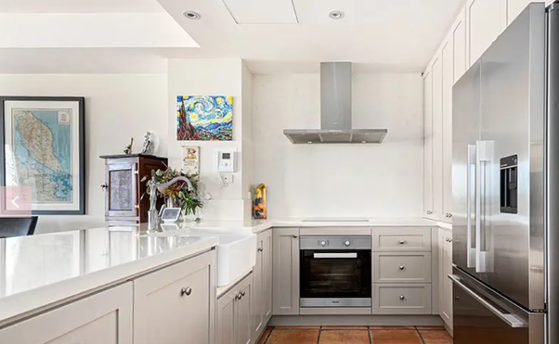
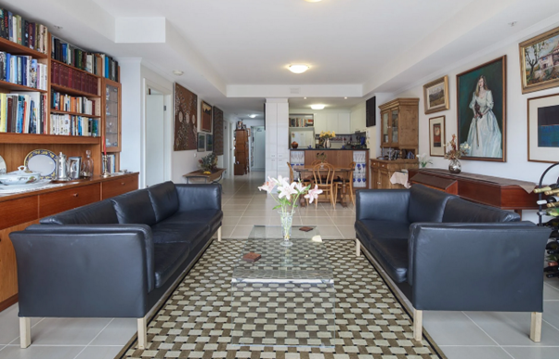
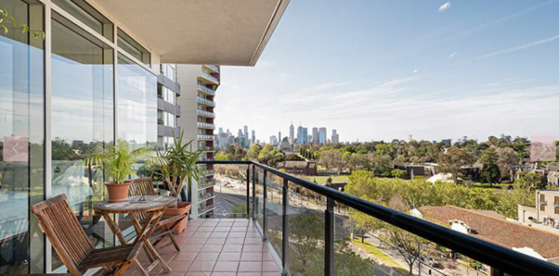
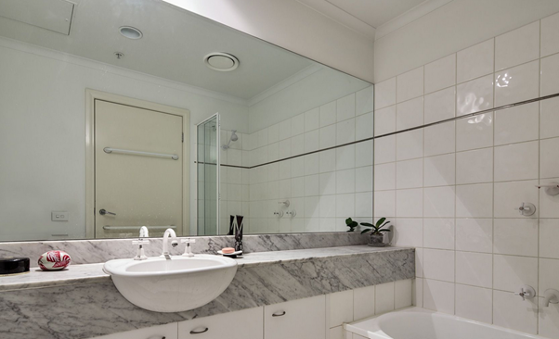
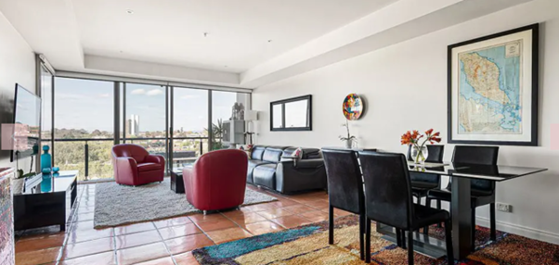
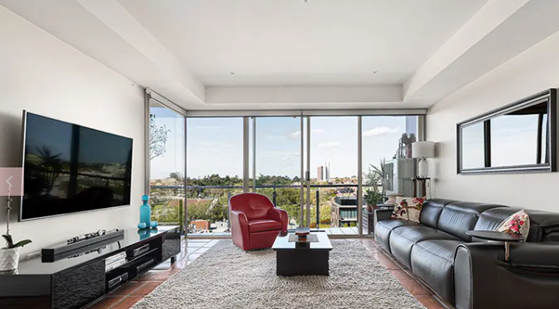
With over $1 Billion in sales, Mike Bentley is extremely well connected, professional, and experienced. His global network, market knowledge, and dogged drive puts him in a league of his own. Backed by his extensive knowledge of the 416-418 St Kilda Road precinct, Mike can provide the best service possible to each and every one of his clients.
POWERFUL &
EFFECTIVE Custom Marketing. Access to overseas buyers.
Citylife International is a private Australian real estate agency, advisory and consultancy company, with a focus on selling units in the St. Kilda Road precinct of 416, 416A and 418
TEL: 0468 314 999